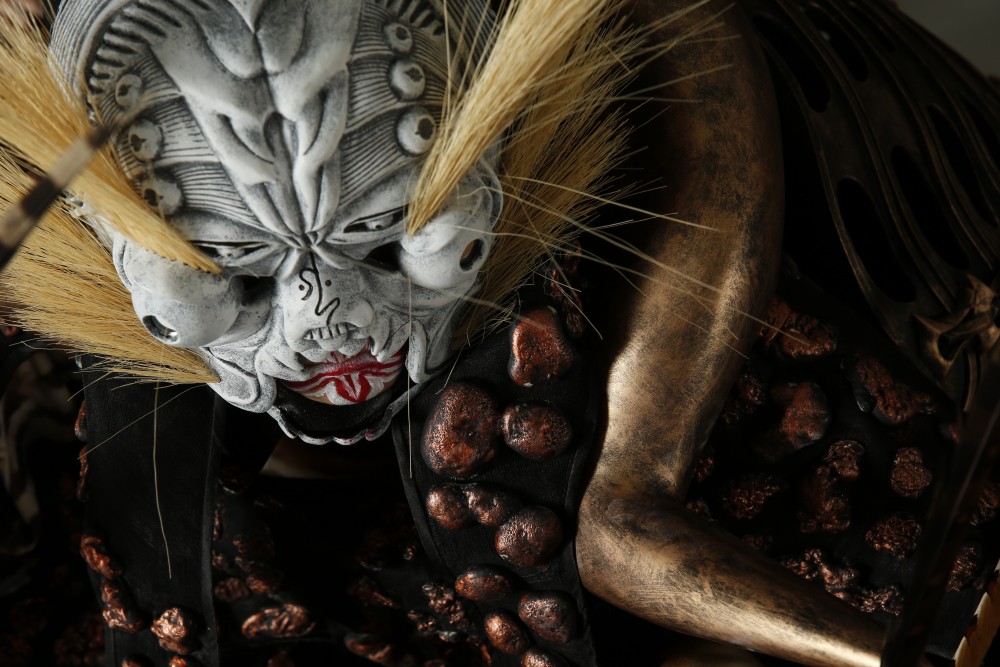
Having stunned audiences at the 2011 Edinburgh International Festival with a one man performance of King Lear maverick dramatist Wu Hsing-kuo and the Contemporary Legend Theatre returned to the capital this month to perform Franz Kafka’s iconic novella Metamorphosis. Gregor Samsa the travelling salesman awakens one day in horror as a giant insect and struggles to cope with his feelings of alienation from the rest of the world.
As with his portrayal of Lear, writer-actor-director Wu dresses the stage with his own blood, the sheer endurance displayed by the 60 year old during his extremely physical performance belies his deep commitment as an artist and his obsession with the author.

Crossing boundaries in all respects; the inclusion of multimedia elements pushes the limits of theatre, while the cross cultural exchange between the 20th century European text and Oriental spirituality alleviates and resolves much of the futility and hopelessness the original narrative evokes. Scripted entirely in Mandarin Wu’s haunting singing is accompanied by translated English subtitles. The simplicity of the spiritual aphorisms of the Mandarin script juxaposed with the complex physicality of Wu’s performance embodies the concept of Saṃsāra, cyclical existence caused by selfishness and the traps of modernity. Only by coming to terms with the absurdity of reality can Gregor escape. As Kafka says “There are only two choices in life. Be yourself or put up with reality.”
Kafka’s monstrous carnation of the beastly insect-man represents a conceptual portrait of Western psychodrama. His flickering antennae and scuttling legs are the Frankenstein collage of the 20th century crisis of consciousness, yet Wu’s finds redemption. After waking up cocooned in insect costume convulsing at the thought of himself he emerges enlightened in stripped, white form as his emancipated soul soars over the mountain, exiting the cycle in the mouth of a bird. The transformation is clear on stage, however the narrative seems to lack any outstanding climatic point until the drawn out ending of the performance.
The man-insect lives in woeful solitude in the confines of his bedroom while his hateful father and wailing mother and sister intermittently interrupt his melancholy self-searching by rapping loudly on the ominous door center stage. Repulsive to those around him, Gregor’s existence becomes that of a pariah. The stage focuses on the looming ice mountain where Wu writhes and squirms in his new arthropodic body as the astonishing visuals by Ethan Wang drape the deconstructed set with pulsating Rorschach blotches, falling Surrealist apples and a superimposed Kafka. The awesome visual beauty projection of visuals onto the set while Wu dances compellingly in Peking Opera style alongside a haunting score lulls the viewer into a psychotomimetic trance.
The production is 100 minutes long without interlude, the audience feels the crushing weight of Gregor’s condition on their own shoulders and so his eventual death comes as a relief, ending both his struggle against the futility of human existence and the viewer’s own desire for the final curtain to fall. While indeed the production does pose a challenge, Wu’s creation is undoubtedly mesmerising and contains a welcome element of hope and the chance of peace, something Kafka’s original text withholds.
—-Hailey Maxwell

